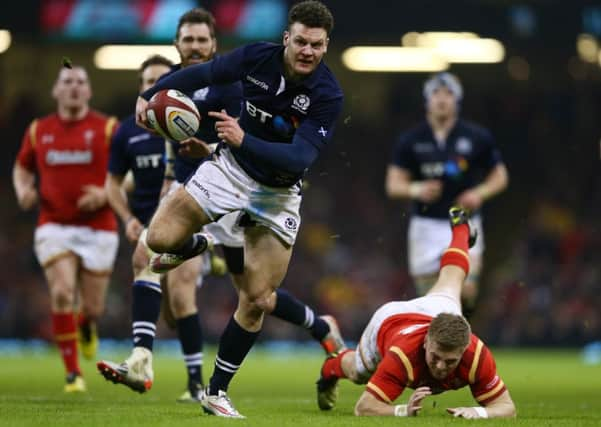Allan Massie: Fierce battle for World Cup places but injury shadow looms large


It’s a provisional squad of course. Others may yet force their way into it. Some surely will. For one thing, with hard training camps and four “warm-up” internationals in late summer, it will be remarkable if half-a-dozen or so of those named this week aren’t either on the treatment table or already in rehab when the plane takes off for Japan. That’s the way things are and it will be the same for every country.
A lot of hope is being invested in Duncan Taylor. Fingers are crossed whenever he is mentioned. Nobody doubts he is an intelligent and richly talented player. But – there is always a but – he hasn’t been fit to play for Scotland for two years now and has played next to no rugby for Saracens either. He has only recently resumed light training. Will he be as good as he was before suffering a succession of injuries? Nobody knows. What we do know is that recovery of fitness and form takes time and there isn’t much time left.
Advertisement
Hide AdAdvertisement
Hide AdIn this connection, one might note, sadly, that the absence of Mark Bennett from the squad is no surprise, even though it’s not so long since he seemed to have the firmest of grips on the number 13 jersey. Then he too was injured – and injured again and again – and hasn’t managed to secure a regular starting place in the Edinburgh team. Likewise, injuries and concussions have ended Alex Dunbar’s international career, for the time being anyway. Yet three or so years ago Dunbar and Bennett seemed likely to be our first-choice centre pairing for years to come.
Competition in the back-row is fierce. Sam Skinner is likely to be in the final 31-man party because he plays both lock and blindside flanker. If you assume that John Barclay, Ryan Wilson and Hamish Watson are all certainties, this probably leaves two places to be disputed by Jamie Ritchie, Magnus Bradbury, Matt Fagerson and Josh Strauss. Difficult.
Some have questioned the omission of Duncan Weir who, after a lean spell with Edinburgh, has recovered form and had a good season with Worcester. I suppose Weir doesn’t naturally play the close-to-the gain-line game with which Finn Russell and Adam Hastings are comfortable, though both will of course vary it and sometimes take the ball quite deep, as Weir mostly likes to receive it. Nevertheless, there are days when conditions and the nature of the opposition may demand the territory-commanding kicking game which Weir plays well. I suppose he is still quite close to a call-up, might be closer still if Townsend didn’t already have the option of switching Greig Laidlaw from nine to ten. There’s one thing Weir does better than Russell or Hastings and this is kicking a drop-goal. Certainly if you were two points behind in the last minutes of a close match, there’s no one you would rather have at ten. The drop-goal sometimes seems a forgotten option despite being often the most sensible one. Admittedly, the standard of place-kicking is now so high that scoring a try usually means you will get seven points.
Nevertheless, one often sees long spells of possession in the opposition 22 end without any reward, comparatively easy chances to drop a goal having been spurned. In knock-out matches especially, it’s important to keep the scoreboard ticking. There have been few teams more able to conjure tries out of any situation than the All Blacks throughout the professional years. Nevertheless, stand-offs like Andrew Mehrtens and Dan Carter were always alert to the possibility of dropping a goal. Scotland have almost always had at least one very tight finish in World Cup matches – the kind of game when the opposition defence in the closing minutes is disciplined enough to avoid conceding a penalty. In such situations, a drop goal may be the difference between further progress in the Cup and an early flight home.
Of course, the domestic season hasn’t yet expired. Glasgow have their Pro14 semi-final against Ulster at Scotstoun on Friday – a tough match even at home for Ulster are invariably hard opponents. Glasgow surely won’t be looking beyond it, but may nevertheless be wondering how the result of today’s Champions Cup final may affect Leinster. Which is better? A wounded Leinster or a Leinster already crowned as European champions? Of course in order to reach the Pro14 final Leinster have to recover from their European one against Saracens, and then see off Munster. Demanding programme.
Meanwhile, the keen east wind seems to be dropping, the sun is promising to shine and there’s promise also of pleasure at the Selkirk Sevens this afternoon.